Your ultimate guide to the House 45 race
Karlee Provenza and Paul Crouch disagree on just about every policy, from abortion to climate change to LGBTQ+ rights. But their most significant divide must just be their views on public education.

In one of Albany County’s most competitive State House races, Democratic incumbent Karlee Provenza must ward off a challenge from Republican Paul Crouch if she is to keep her seat.
Crouch, a newcomer to Wyoming, has touted his own conservative views while taking aim at the incumbent’s voting record.
In her first two terms, Provenza has been a strong advocate for criminal justice reform, police accountability, Medicaid expansion and abortion rights. She’s known in Laramie as a community organizer, who’s continued to work on issues like police oversight and housing while out of session.
This election, Provenza has also been campaigning for a slate of progressive city council candidates, providing coordination and support through a political action committee she co-founded.
Crouch, meanwhile, is a less familiar face around Laramie. An IT infrastructure architect for the trucking company R + L Carriers, Crouch moved to Wyoming in 2023 and immediately took an interest in state politics.
He said he supports the various anti-transgender bills passed by the current legislature, wants to see more public money spent on private schools through voucher programs, and believes most abortion should be illegal.
Though his policy positions could make him eligible, Crouch is not officially aligned with the right-wing Freedom Caucus. Nor is he aligned with the more traditional Wyoming Caucus. Crouch said he’ll join whichever camp is more committed to transparency.
Both candidates have been hitting the pavement, knocking doors, dropping literature and opening themselves to voter questions during media interviews and non-partisan candidate forums.
Unlike House District 13, which is a fairly safe Democratic seat, or House District 46, which is a very safe Republican seat, House 45 is very much in play.
While Provenza brings the weight of her experience both on and off the chamber floor, Crouch is hoping the district wants fresh blood.
The General Election is Nov. 5.
A community organizer champions renter protections and police accountability
Six years ago, Provenza was working toward a doctorate in experimental psychology and law at the University of Wyoming. But 2018 was a big year for Laramie and Provenza soon found herself acting as a community organizer in her first foray into local politics.
She was a founding member of Albany County for Proper Policing, or ACoPP, an advocacy organization forged in the wake of a fatal local police shooting by an Albany County Sheriff’s deputy. The deputy, Derek Colling, was neither fired nor criminally charged, but ACoPP led the successful push to oust the sheriff who hired him and the county attorney who declined to charge him. Provenza, and ACoPP, joined the George Floyd protests in 2020, and were heavily involved in the community discussions about oversight and reform that followed.
Charles Pelkey — the man who had represented House District 45 since winning his first election in 2014 — stepped down in 2020, declining to run for another term. In the open contest that followed, Provenza won the Democratic nomination with Pelkey’s endorsement, securing 58% of the vote in the primary.
Provenza then won by a close margin in the general, earning 52% of the vote to defeat her Republican opponent, Roxie Hensley.
Provenza ran unopposed for reelection in 2022 during both the primary and the general.
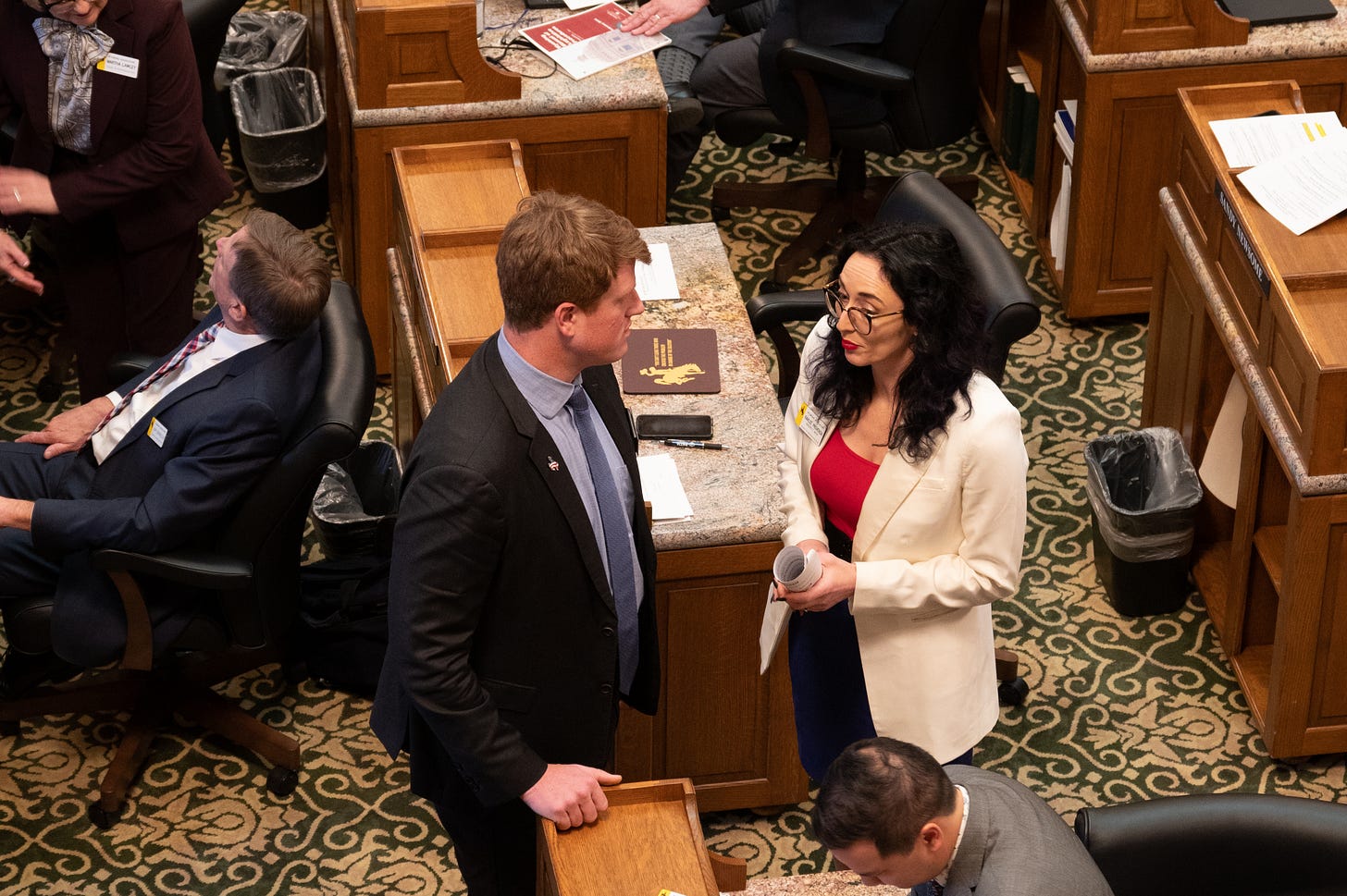
In her two terms, Provenza has been a staunch advocate of reproductive freedom, Medicaid expansion and police accountability. As House Minority Whip, Provenza has been a key figure in the bipartisan struggle to limit the power of the state’s Freedom Caucus. Provenza, her fellow Democrats and other moderate and traditional Republicans have fought the right-wing faction over anti-LGBTQ+ legislation and other social policies — sometimes successfully, other times less so.
As a member of the House Judiciary Committee, Provenza has pushed for various criminal justice reforms, such as a bill she co-sponsored to restore the rights of those with felony convictions. She has also pushed back on efforts to create new crimes or to institute harsher sentences for existing crimes.
During the 2024 Budget Session of the Wyoming Legislature, she pushed for a bill to fix a loophole in state law related to police oversight. The loophole allowed current and former law enforcement officers to withhold their psychological evaluations and other personnel records from the Peace Officer Standards and Training Commission, the state agency tasked with determining fitness for duty.
The issue was especially relevant to Albany County, where Colling, the former deputy who shot and killed Robbie Ramirez in 2018, could not even be evaluated for decertification.
The bill faced pushback from law enforcement agencies, including the Wyoming Highway Patrol, but ultimately passed with unanimous votes in the House and Senate and was signed into law by Gov. Mark Gordon.
Ramirez’s mother, Debbie Hinkel, told the Laramie Reporter the bill’s passage was a “massive relief” and that she could finally sleep through the night for the first time in nearly six years.
“Some of [Provenza’s colleagues] have come around to realize that she’s thoughtful and she’s trying to make intelligent laws that are meaningful and that help protect the public,” Hinkel said. “I mean, she’s truly representing us.”
Outside the capitol, Provenza has continued to organize subsets of her constituency. Most recently, she has been helping mobile home residents across the city to organize under one banner so they can more readily fight against greedy landlords and for government action.
In 2022, Provenza co-founded the Albany County Tomorrow political action committee — or ACTPAC — which backed a winning slate of school board candidates in 2022 and is, this election, backing a slate of progressive city council candidates across two ward races.
The ACTPAC council candidates champion housing reform, tenant rights and aquifer protection. They had a strong showing in this year’s council primaries.
In her own primary, Provenza ran unopposed. But in the General Election, for which early voting has already begun, she faces an electoral challenge from a new face in town.
An Ohio transplant finds a new home … and political possibilities
When Paul Crouch first visited the west — and Laramie — just a few years ago, he said it didn’t take long to fall in love with the place. A few major draws were the downtown restaurants and the college town vibe so reminiscent of the college town where he met his wife.
A father of four in the empty-nesting stage of his life, Crouch had taken a cheap flight during the COVID-19 pandemic just to see somewhere new.
“I convinced my wife to take a trip out here — and I told her I wanted to get an apartment out here,” he said. “We were walking around town, and we kind of huddled into the Wagner Building over here. And there was a guy coming out of the door, and he says, ‘Oh yeah, I’m trying to move out of my two bedroom apartment.’ And so I said, ‘Could we look at your apartment?’”
Crouch and his wife moved in a short while later, in January 2023, and he immediately took an interest in state politics. Crouch attended the 2023 General Session of the Wyoming Legislature as an interested spectator. He would do the same for the 2024 Budget Session one year later, even as he grew closer to the Albany County Republican Party.
“I was kind of politically active in Ohio, and when I got out here, I made contact with the political contacts in Wyoming,” he said. “I’m pretty familiar with most of the [legislators], I’ve gotten a lot of face time with them.”
In May, less than one and a half years after moving to Wyoming’s only university town, Crouch filed to run for the State House.
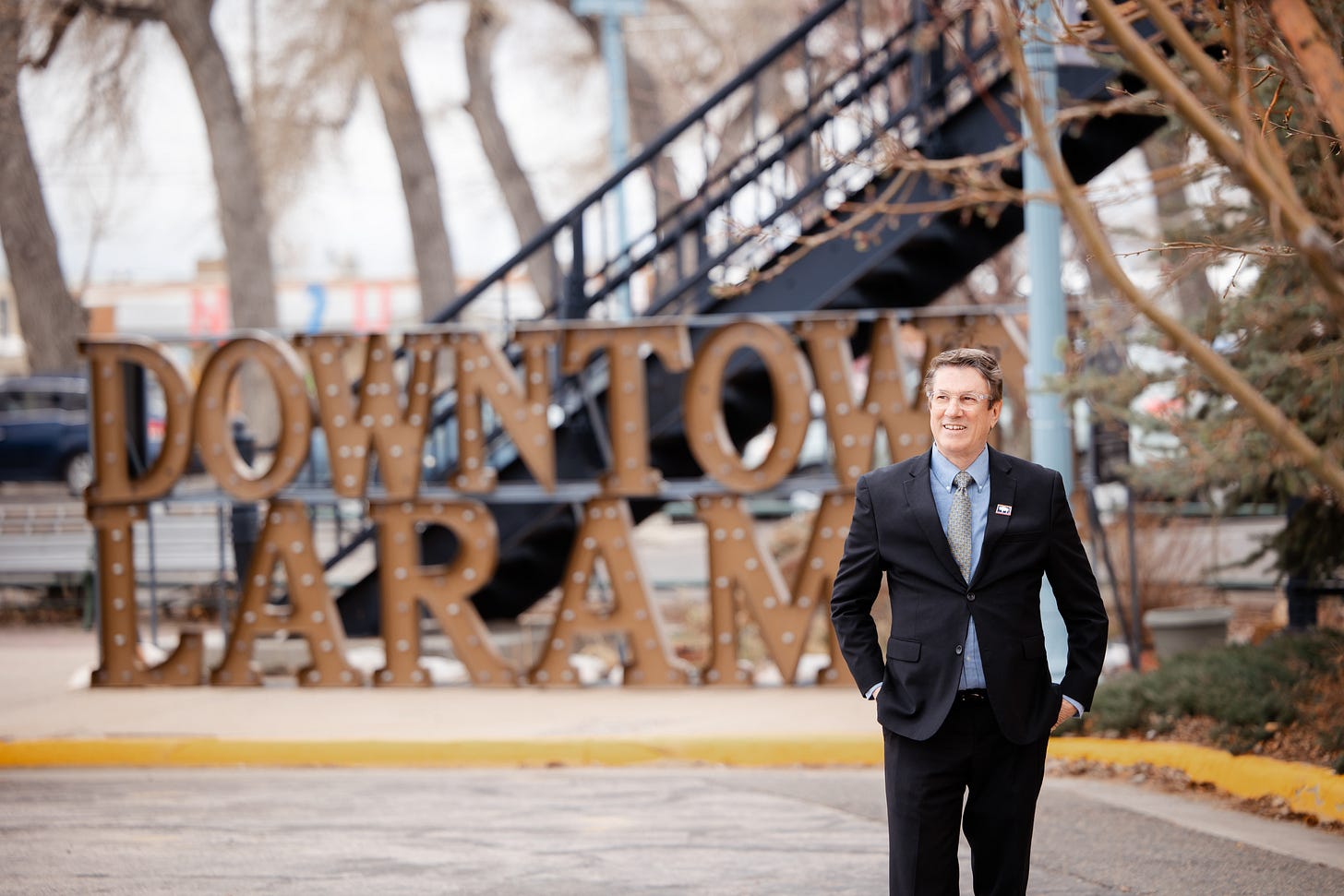
He is now seeking to represent the district currently represented by Provenza — a jurisdiction entirely within Laramie city limits and encompassing the historic downtown area where Crouch still lives.
A newcomer to Wyoming, Crouch’s political beliefs were not shaped by the west, but he feels that his conservative politics gel easily with the conservative politics of his new home.
But is such a recent transplant prepared to represent Wyomingites?
“I’ve knocked on a couple doors, and I’ve had a couple people ask me that,” Crouch said. “And so I always respond to them, and I say, ‘Yeah, I’ve been to the last couple legislative sessions, and I feel like I know some of the legislature personally.’ So I don’t think it’s a big deal.”
Crouch isn’t the only newcomer running for a seat in the Wyoming Legislature. Across the state, several candidates — all Republicans — have moved to the state in the last five years and have soon after launched political campaigns. Some of them have pushed up on the legal residency requirement that candidates live in Wyoming for a full calendar year before serving.
(In Albany County, House 14 candidate Joe Giustozzi moved to Wyoming four years ago.)
But when it comes to campaigning, Crouch is putting in the time. Like his opponent, he’s kept up an aggressive regimen of hitting the pavement and knocking doors throughout the district. And unlike some of his local Republican allies, Crouch has attended non-partisan forums and sat down for media interviews.
Differing visions for Wyoming
Crouch and Provenza don’t agree on much. The Laramie Reporter asked both candidates about their positions and beliefs regarding some of the most pressing issues in Wyoming today.
The future of public education
Crouch said he is running “because of my kids.”
While his own children never attended Wyoming public schools, they did receive a mix of homeschooling and public education in Ohio. Those experiences left Crouch unimpressed with the latter.
On the one hand, he said public education made his kids “a lot more liberal than I would have expected.” On the other hand, he said public schools don’t cater to the individualized needs of highly variable and unique children.
“I think some parents are recognizing [the schools] don’t understand how my kid learns,” Crouch said. “So I think the model of our school systems has to change, and change for the better in the sense that we need to recognize the strength of every child.”
For Crouch, this “change” means expanding “school choice” by supporting a wider range of alternatives. In practice, this means voucher programs that allow public funds to be spent on non-public schools.
Wyoming passed a bill in 2024 allowing the state to provide such vouchers to families who pull their kids from public schools and place them in private schools or who choose to homeschool. The governor used a line-item veto to scale back the bill’s scope, limiting eligibility to low-income families.
But Crouch whole-heartedly supports the voucher program and would like to see it expanded for all families. He said those families are currently “paying double” — paying the taxes that support public education while also paying private school tuition or purchasing homeschooling supplies.
Provenza rejects not just the idea of the voucher program but also Crouch’s framing of the issue. She said a voucher program leaves everyone else “paying double” because their taxes fund the private school vouchers in addition to the public education system.
Provenza, who does not have children, said she’s happy to support public education with her own tax dollars because “it’s not about me.”
“The point of public education is that it benefits the entire community,” she said. “There’s plenty of things that benefit us as a society. Maybe I don’t drive on [Wyoming Highway] 130 or I don’t drive on the county roads when it snows, but other people do, and I believe that they should have the right to have access to roads.”
As a member of the House Education Committee, Provenza has watched the debate surrounding school vouchers take root in the Equality State.
“Wyoming, historically, has had just a really incredible public education system that is widely supported by everybody,” the Laramie representative said. “And so it’s been kind of the rise of folks that are more interested in connecting religious practices to government, who are interested in taking away that church and state separation, which is a new development in Wyoming.”
Crouch doesn’t deny the voucher program will put public taxpayer money into the hands of religious organizations. He doesn’t see that as a problem.
“I love when Democrats always bring up the separation of church and state, because, you know, you take out some money and it has ‘In God We Trust’ on it,” Crouch said. “Freedom of religion … doesn’t mean you keep the religion out of the schools.”
The Wyoming Constitution, however, does forbid the teaching of “sectarian tenets or doctrines” in public schools. It also forbids the state’s education funding from being used “to support or assist any private school, or any school, academy, seminary, college or other institution of learning controlled by any church or sectarian organization or religious denomination whatsoever.”
Article 1, Section 19 states:
No money of the state shall ever be given or appropriated to any sectarian or religious society or institution.
Citing these parts of the state constitution, Provenza said the voucher program approved by the Wyoming Legislature earlier this year is unconstitutional. She voted against the bill both in committee and on the chamber floor.
“When you see something like that in the Constitution, it’s pretty clear that the people of Wyoming, for the most part, support that,” Provenza said. “So it hasn’t been a value, I think, brought forth until we had more people coming from out of state running for government positions with extreme views.”
She said expanding the voucher program to benefit families with higher incomes, as Crouch proposes, would be even less constitutional.
Outside of the specific debate surrounding school vouchers looms the larger issue of public school funding. An ongoing lawsuit brought by educators alleges the state has failed in its obligation to adequately fund public schools.
Like her fellow Albany County representative, Trey Sherwood, and like Laramie Sen. Chris Rothfuss (SD-9), Provenza wants to increase funding for public education.
“Senator Rothfuss and I moved a committee bill this interim for an external cost adjustment which would increase funding for schools for things like teacher pay by 8.5%,” she said. “This bill will help the state legislature meet the funding requirements created in the education funding model that has been mandated by the Wyoming State Constitution.”
Provenza is endorsed by the Wyoming Education Association.
Reproductive rights and abortion bans
Provenza is a strong advocate for reproductive rights.
She has voted against the bills outlawing surgical and chemical abortion and has backed several doomed efforts to halt the backsliding of abortion rights. That included a 2023 bill meant to keep abortion explicitly legal in cases of rape, incest or life-threatening complications, a 2024 bill aiming to do the same, and a pair of resolutions in 2024 asking for ballot amendments to enshrine healthcare freedom and individual privacy.
“Pregnancy is personal, not political,” Provenza said. “We have watched pregnant people across the country die because lawmakers would rather force women to be pregnant than allow women to make their own personal healthcare decisions with their families.”
Crouch believes most abortion should be illegal.
“I’m pro-life, I’m pro-babies, and I’m pro-families that raise their babies,” he said. “When a man and a woman come together, that’s the point of choice, and at some point, the choice has been made, and so I’m pro-life.”
Crouch said abortion “should be a rare instance” but he would allow for some exceptions.
“We shouldn’t use abortion as … eliminating pregnancy just because I don’t want to have kids, [but when] it’s important to save the life of the mother,” he said.
Diversity programs and gender studies at the university
During the 2024 Budget Session, lawmakers attempted various amendments to the state budget bill aimed at restricting the University of Wyoming’s curriculum or programming.
An attempt to eliminate and forbid gender studies courses at UW passed in the State Senate but was dropped when lawmakers married the House and Senate proposals before sending the final budget bill to the governor.
A separate and more successful amendment to the state budget forbade the university from using state funds on its Office of Diversity, Equity and Inclusion. The initial amendment also forbade the use of state funds on any diversity-oriented programs, whether or not they fell under the umbrella of ODEI. The governor vetoed this second part of the amendment, but left the first part, such that UW’s two-year budget was reduced by $1.7 million and its leaders had to decide whether to ax the office or to fund it through other means.
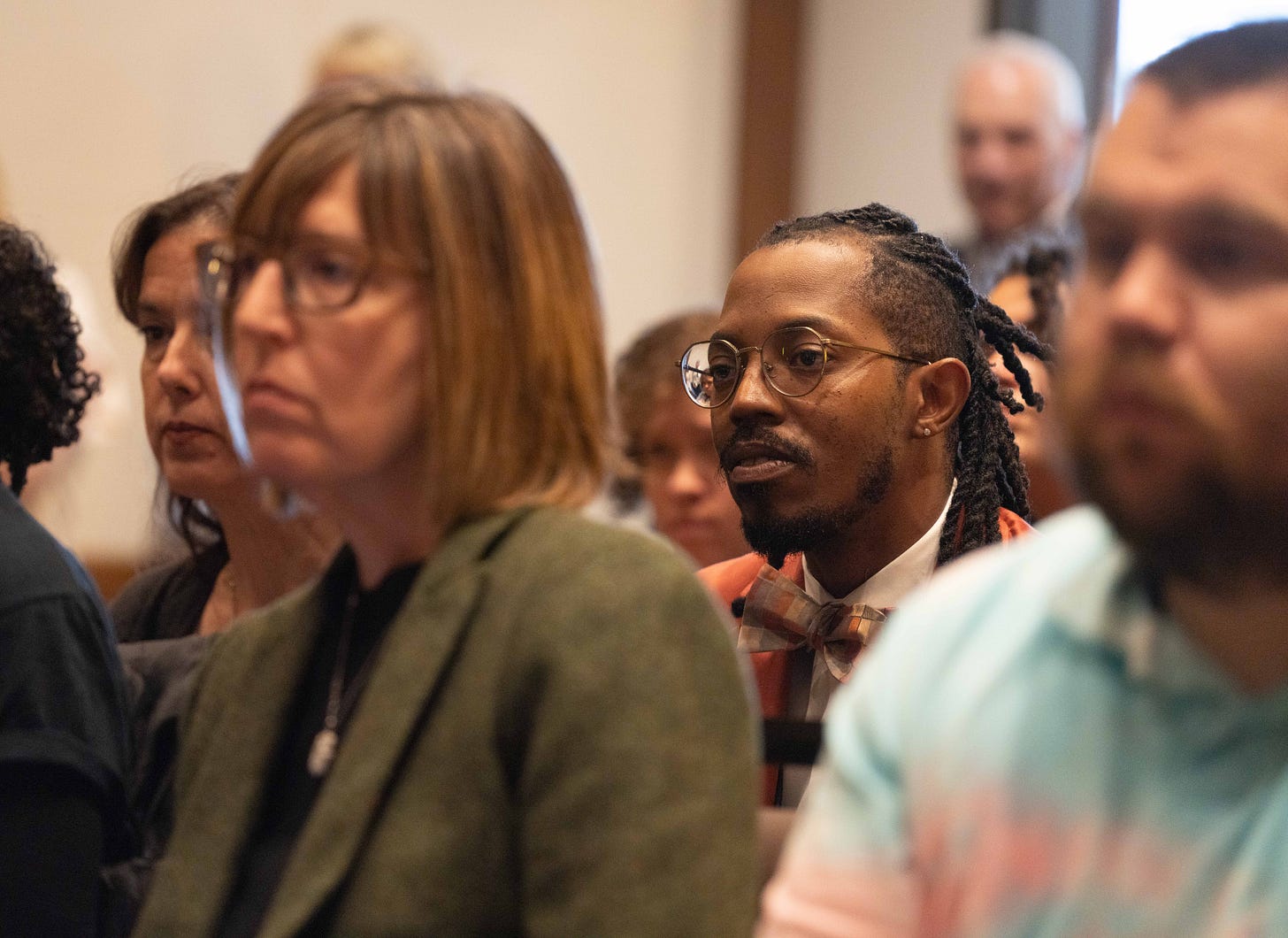
UW opted to eliminate the office and has since started to overhaul its other diversity-oriented programs despite having no explicit requirement to do so.
Crouch supports these legislative efforts to keep UW in check and said he would vote to eliminate the gender studies program if the proposal came up again.
“I cannot stress enough how important research is at the university,” he said. “And there’s a certain amount of liberal arts education that needs to go on to make a really well-rounded student, but there shouldn’t be a method of indoctrination in our public schools or universities or community colleges.”
Provenza has voted against these efforts when given the chance and said she would “absolutely not” support any future efforts to ban gender studies.
“Doing this is an infringement on student’s academic freedom to make their own choices about what to study and these courses are often not what legislators even think they are,” Provenza said. “We should leave curriculum decisions up to experts and what students want, not a bunch of ill-informed lawmakers answering to manufactured rage coming from extremists from out of state.”
Energy and climate change
Since the industrial revolution, the release of carbon dioxide and other greenhouse gasses into the atmosphere have altered the climate of humanity’s only home. Those gasses have blocked and continue to block increasing quantities of energy from dissipating back into outer space, thereby warming the planet, melting its ice sheets, and raising sea levels. The result is more severe, frequent and chaotic weather events that have threatened human security around the world.
There is a strong scientific consensus that climate change is driven by human activity, that the pace of climate change is unprecedented and that the changing climate will continue to cause extreme events that threaten human life.
Responding to that threat, much of humanity — and most Americans — support either the short-term or eventual phasing out of fossil fuels.
Crouch is less convinced.
“The weather changes all the time, so I’m not a proponent of scaring people into making irrational decisions about energy policy,” he said. “Our energy policy should be based on what’s affordable and what’s in the best interest of people.”
While climate change is a global problem, the issue is especially relevant for Wyoming — not only because Wyoming is expected to have more very hot days, more drought and more frequent wildfires but because the state’s economy, for decades, has relied on fossil fuels.
“We shouldn’t prevent people from buying coal or prevent people from buying oil or buying gas, but our university should be doing all they can to research new opportunities,” Crouch said.
Many at the university are doing just this. But Crouch’s opponent, Provenza, said the state also needs to build resilience to keep thriving in an altered environment — and to pursue economic diversification to become less dependent on a single industry.
“We need to change how we pay our bills in Wyoming,” she said. “Relying on fossil fuels to pay our bills has worked great when we are in a boom, but the next bust is around the corner, and the rest of the world isn’t interested in turning back to fossil fuels because we simply can’t afford to.”
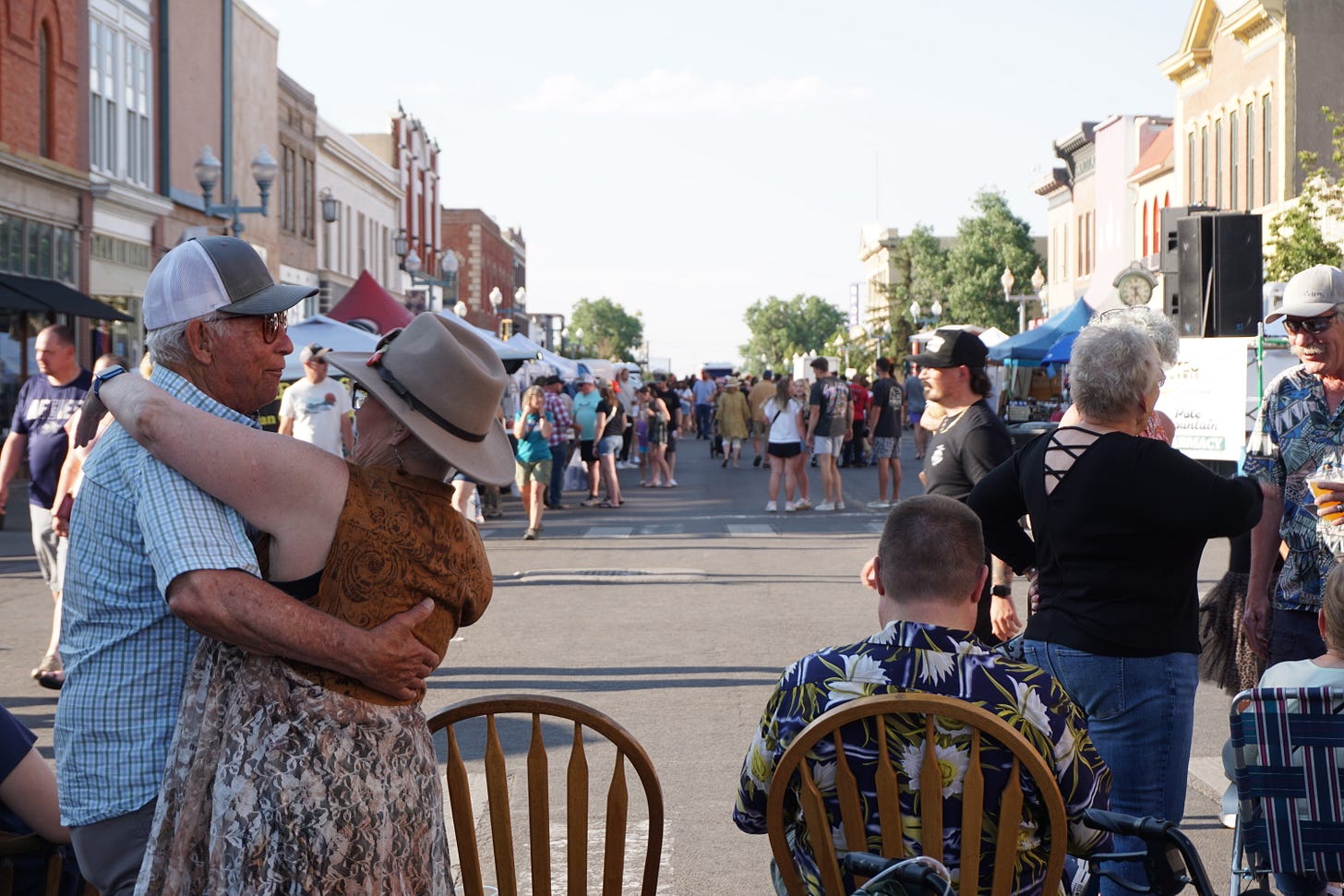
Provenza pointed to Laramie’s recent warm weather, this autumn’s raging wildfires, and the region’s diminishing snowpack as evidence that climate change is not only imminent but present.
“It’s time we start thinking about future generations and the world we want to leave them,” she said. “What is Wyoming if we have no streams to fish, no deer to hunt, and we can’t see the mountains through smoke and haze?”
On the economic front, Provenza wants to work toward “creating good paying jobs for people across the state in industries that don’t rely on fossil fuel.”
“The people earning an honest wage from working in a coal mine aren’t married to coal, they just want to have a good job so they can feed their family and give their kids a better life,” she said. “That’s what we should be chasing — a greater life for the future, not a death grip on the past.”
In Wyoming, a majority of residents believe climate change is happening, but only 45% agree with the scientific consensus that it’s human-driven. Nearly a third say they’ve experienced the effects of global warming.
In Wyoming, climate deniers have launched an organization called the ‘CO2 Coalition’ to platform climate misinformation. The coalition has the ear of many right-wing state lawmakers.
The group’s talking points have gained steam even as Wyoming benefits handsomely from federal spending to address climate change.




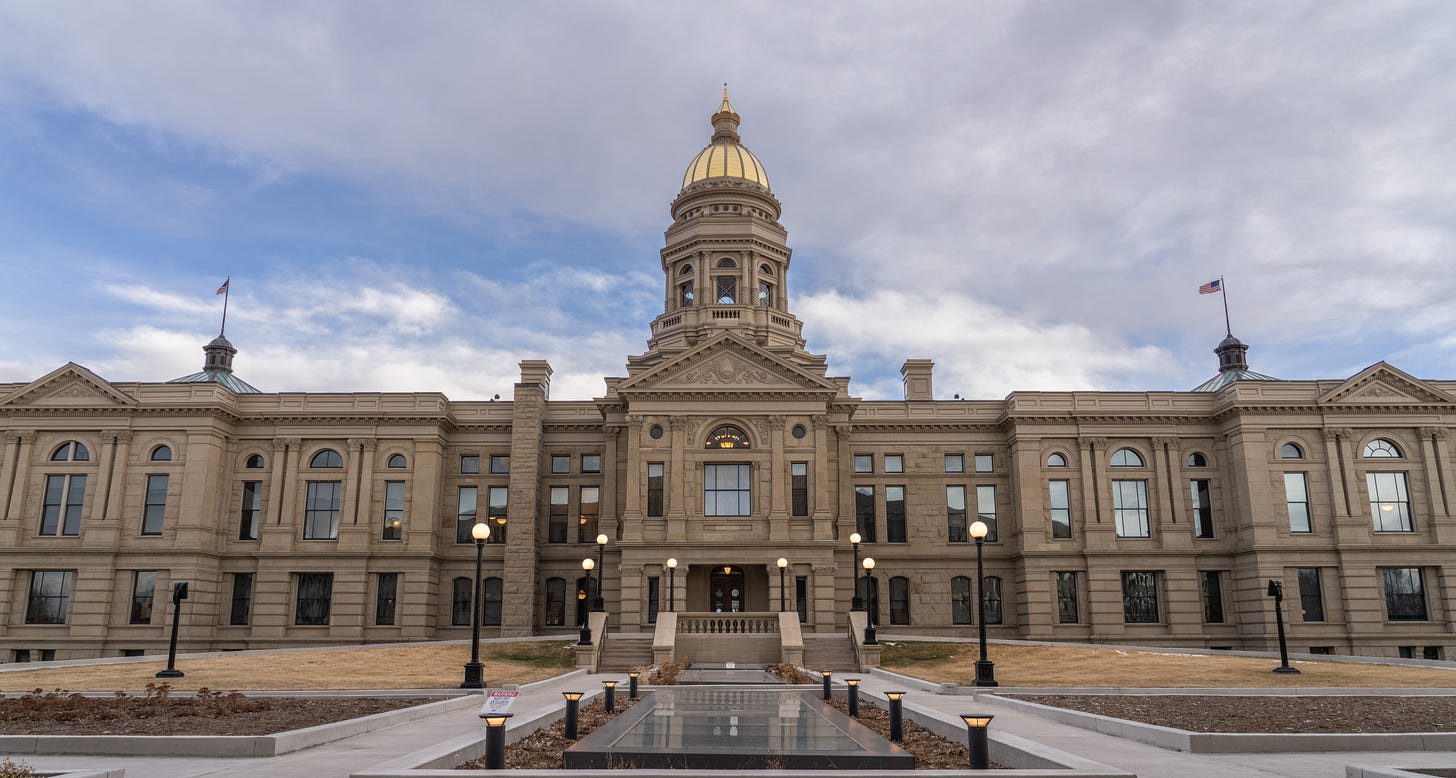
Mr. Crouch lived in Wyoming since 2023. He now has enough knowledge after watching two legislative sessions to consider himself ready to enact legislation for the rest of us. Must be quite the guy. It would be interesting to know his position on city ordinance #1802, setting safety and habitability standards for local rentals and whether, if elected to Cheyenne, he would overturn them.
Hopefully the voters in this district will be smart enough to return a true representative to the legislature and not someone who has lived in the district for a couple minutes. Let the previous election of Janette Ward in Casper be an example of why you don't elect carpet baggers.